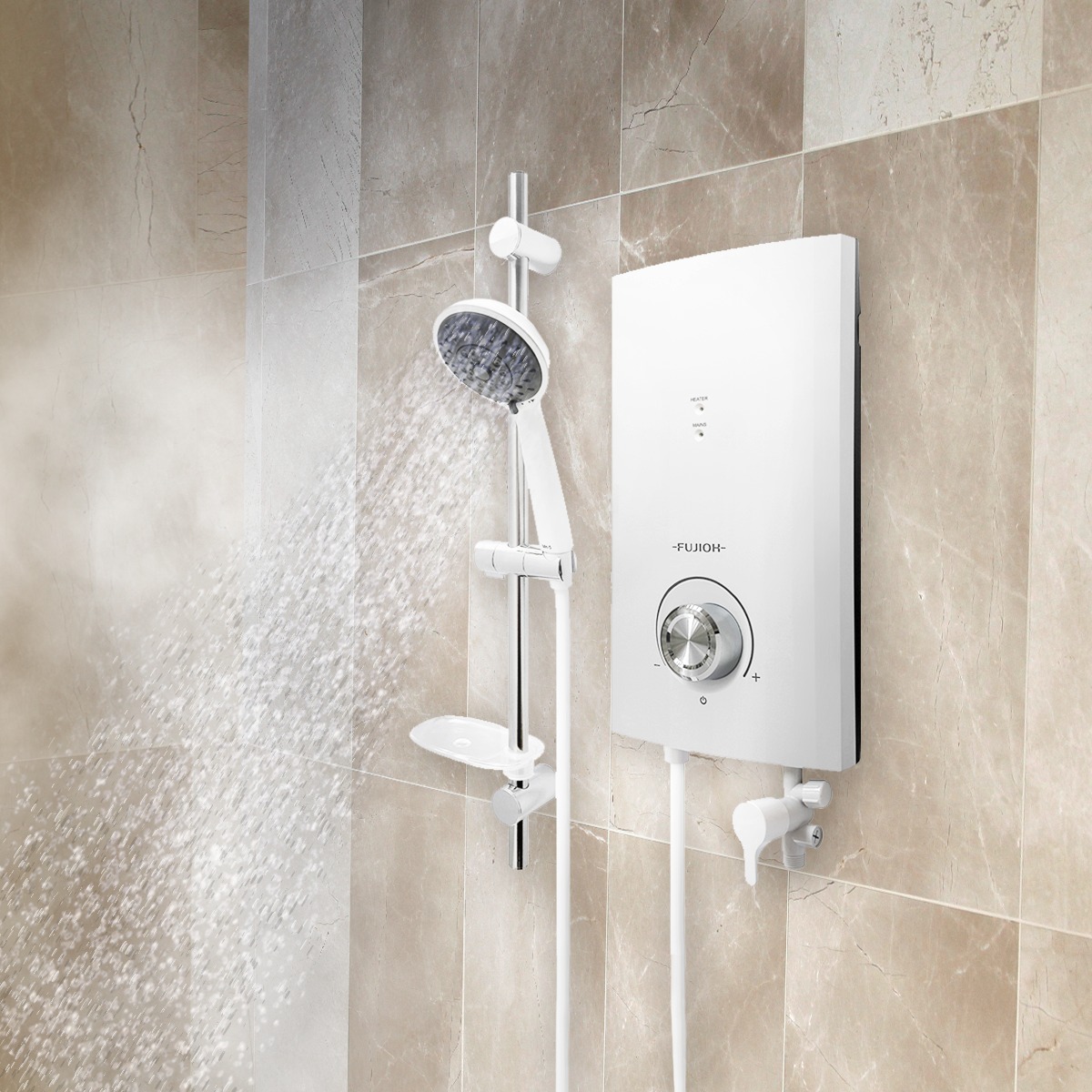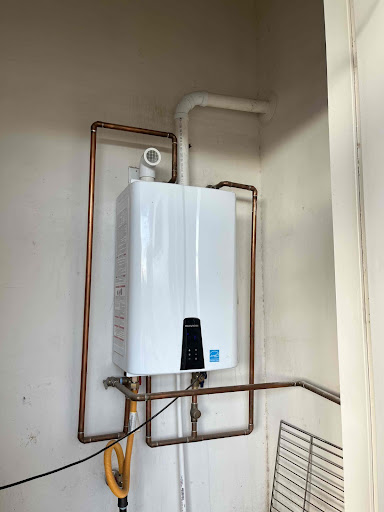What Smart Water Heaters Grant Significant Benefits
What Smart Water Heaters Grant Significant Benefits
Blog Article
What're your thoughts regarding Pros and Cons of Tankless Water Heater?

In a world where convenience and effectiveness reign supreme, it's no surprise that house owners are constantly on the lookout for smarter methods to manage their home's energy consumption and convenience. One innovation that has actually steadily gotten popularity is the tankless water heater. But just what makes these systems stand out from the standard tank-based models a lot of us matured with? Let's dive in and discover the advantages of tankless water heaters, aiding you make a decision if it's time to make the switch in your home.
Introduction
Picture this: you enter the shower after a lengthy day, expecting a comforting cascade of hot water, just to be greeted by icy beads because the last person utilized all of it up. Noise acquainted? Conventional hot water heater store a fixed quantity of warm water, implying you go to the mercy of that storage tank's supply. Tankless systems, on the other hand, warmth water on demand. No more running out mid-shower, say goodbye to fumbling with schedules just to guarantee warm water is offered.
Recognizing Tankless Hot Water Heater
What Are Tankless Water Heaters?
Tankless water heaters, often called on-demand or instantaneous water heaters, provide hot water just as it's required. As opposed to storing gallons of pre-heated water, these systems kick right into activity the minute you activate the tap. Water goes through a warm exchanger, warming up in real-time, implying you get an undisturbed circulation of warm water without the requirement for a huge storage tank sitting idly by.
How Do They Vary from Standard Equipments?
Standard heaters hold a reservoir of hot water, making use of energy to maintain that tank at a constant temperature level. Tankless units get rid of the standing supply, minimizing wasted energy and the large impact of a large cylinder. Basically, you're updating from a "accumulation" way of thinking to a "made-to-order" approach.
Common Kinds Of Tankless Devices
Tankless hot water heater generally can be found in 2 varieties: gas and electrical. Gas models have a tendency to deliver greater circulation rates, perfect for larger families, while electrical designs usually serve smaller sized homes and are typically easier to set up. Furthermore, some systems are made for point-of-use (offering one component) while others can manage the entire home's warm water requirements.
Secret Advantages of Tankless Hot Water Heater
Energy Performance and Expense Savings
Say goodbye to heating up a titan container's worth of water and maintaining it toasty throughout the day. Tankless heaters lower standby energy losses, which can decrease utility expenses. While the first cost may be greater, the lasting financial savings often justify the investment.
3. Space-Saving Design
If your home is short on storage space, removing the cumbersome storage tank frees up valuable room. Tankless systems are compact and can usually be placed on walls, tucked away in edges, or set up in limited utility closets without having all to oneself the entire room.
4. Longer Lifespan
A properly maintained tankless hot water heater can outlast its tank-based relative. Typical containers may last 10-15 years, while tankless designs can keep downing along for twenty years or more, making them a strong investment over time.
1. Countless Hot Water Supply
Ever before had to set up showers so everybody obtains their fair share of warm water? With tankless, that becomes a distant memory. As long as the heater's flow ability isn't exceeded, you can take back-to-back showers without developing into a popsicle.
5. Improved Water High Quality
Saving water in a container can sometimes bring about debris accumulation or a somewhat "off" preference. With tankless systems, fresh water is heated up on the spot, reducing the opportunities of debris buildup and possibly providing cleaner-tasting water.
Factors to consider Prior To Changing
Though the advantages are engaging, it's important to take into consideration a couple of factors before completely committing.
Reviewing Your Home's Water Usage Patterns
If your household simultaneously makes use of multiple components with high warm water demand, make certain the unit's circulation rate satisfies your demands. Knowing your usage patterns aids you select the best dimension and type of tankless heating unit.
Upkeep and Care Tips
Tankless systems are fairly reduced maintenance, yet they aren't set-it-and-forget-it appliances.
Routine Cleansing and Descaling
Tough water minerals can build up in the warm exchanger, influencing performance. Regular descaling (often recommended yearly) maintains the system going for peak performance.
Yearly Specialist Evaluations
A yearly checkup from an expert makes sure small problems are captured early. They'll examine the system's performance, seek leakages, and aid keep optimal performance.
Preliminary Financial Investment Expenses
Tankless heating units commonly include a greater in advance cost. In between the system itself and potential installment modifications, the first price may offer you sticker shock. However bear in mind to see it as a lasting financial investment.
Installation Demands
Depending upon your home's infrastructure, you might need added electrical capability or gas line upgrades. Guarantee you recognize the installment demands and speak with a specialist to avoid surprises.
Making Certain Proper Air Flow
For gas versions, correct ventilation is important to securely get rid of exhaust gases. Make sure venting systems are tidy and properly mounted to prevent any kind of possible safety risks.
Comparing Different Brands and Models
Not all tankless hot water heater are developed equal.
Looking Into Reputable Makers
Search for respectable brands with a background of producing top quality systems. A reliable maker typically gives much better consumer assistance and longer warranties.
Setup: Do It Yourself or Professional?
While some house owners relish taking on projects themselves, tankless setup could not be the best time to break out the tool kit.
Benefits and drawbacks of DIY Setup
A DIY mount could conserve money, however it features dangers. Incorrect setup can bring about ineffectiveness or safety and security concerns. If you come in handy and have experience, it might be practical-- yet proceed with care.
Checking Out Reviews and User Comments
User testimonials and responses from neighbors or close friends who have actually gone tankless can use important insights. Occasionally, real-life experiences can be extra telling than advertising brochures.
When to Call a Specialist Plumber
For the majority of, calling a pro ensures whatever's done correctly. A specialist plumbing recognizes regional codes, sizing needs, and venting parameters, minimizing the risk of incidents.
Making best use of Efficiency
You've bought a tankless unit-- currently optimize its efficiency.
Ideal Temperature Level Setups
Most people set their devices between 120-140 F. Readjusting the temperature can enhance convenience and cost savings. Experiment to locate a pleasant area that doesn't waste power.
Coupling With Low-Flow Fixtures
Intend to extend your device's capacities? Consider installing low-flow showerheads and faucets. They minimize water usage, allowing your tankless system to supply a consistent stream of warm water without straining.
Ecological Effect
Tankless water heaters straighten with greener living objectives.
Minimized Carbon Footprint
By utilizing less power and only home heating water as needed, tankless systems can lower your home's carbon impact, reducing your environmental influence.
Saving Natural Resources
Much less energy usage and much less squandered warm water equate into less natural deposits being utilized, an environmental win-win.
Who Benefits The Majority Of from Tankless Heating systems?
The appeal of tankless heaters is that they can match a range of homes.
Large Family Members vs. Single Occupants
Big family members might love the limitless hot water supply, while solitary owners value the energy cost savings from not heating up an entire container for simply one person's early morning shower.
Home Owners with Limited Space
If your home is short on square video footage, shedding the bulky tank liberates space for other essentials-- or possibly just much more breathing space.
Eco-Conscious Customers
Going tankless aligns with environmentally friendly worths, ensuring you're not throwing away power or resources.
Future Fads in Tankless Water Heaters
The globe of home appliances is ever-evolving, and tankless water heaters are no exemption.
Developments in Modern technology
R&D is regularly improving warm exchangers, making systems more efficient and long lasting. Future designs might be even quieter, extra portable, and much better fit for varying environments.
Smart Home Assimilation
Envision adjusting your water heater's temperature through an app or getting upkeep informs on your phone. As smart home tech developments, we'll see even more connectivity and ease.
Verdict
Choosing a tankless hot water heater is greater than simply updating your home's hot water system; it's investing in lasting convenience, energy efficiency, and a greener way of life. By considering your home's water use, bearing in mind installation needs, and dedicating to normal upkeep, you can take pleasure in a consistent stream of hot water without the luggage of a bulky tank. As innovation develops, you can look forward to also smarter, more efficient tankless options that not just make your life much easier yet additionally benefit the world.
Pros and Cons of Tankless Water Heaters
Tankless Water Heater Pros
Saves Energy: Simply put, you re spending less energy to create hot water, so your total carbon footprint goes down, not to mention your bills. Lasts Longer Than Storage Tanks: Storage tank units need to be replaced every 15 years or so. But tankless units? They can last for 30 years before they give out on you. Constant Hot Water: Need to take a shower and don t want the water running cold? Awesome it won t. The water will stay hot the entire time because it creates hot water on demand. Saves You Money: Less water usage equals less money. Beyond that, you re not paying to keep water hot 24/7. Those savings add up quickly. Better for the Environment: Less water waste is better for everyone. It saves you money, but it s also environmentally conscious at the same time. Tankless Water Heater Cons
It Can Take a Minute: Depending on your specific unit and its placement, it can take anywhere from 10 seconds to 2 minutes to fully heat up. Because there s no storage tank, it heats water as you need it. Upfront Purchase Price: While we talked about their longevity, there s sticker shock when you look at brand-new tankless units to install. It pays for itself, but it s still a big chunk of change at first. Has its Limits: If you run multiple appliances at once, such as the dishwasher, washing machine, and maybe you take a shower at the same time, there might not be enough hot water. https://www.airsouthnow.com/blog/water-heater-service/pros-and-cons-of-tankless-water-heaters/

As an enthusiastic reader on 5 Benefits of Tankless Water Heaters, I assumed sharing that excerpt was worth the trouble. Appreciated our posting? Please share it. Let another person find it. I take joy in your readership.
Call Today Report this page